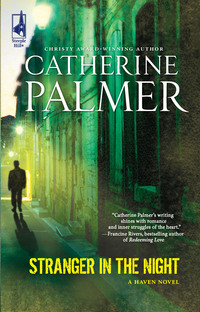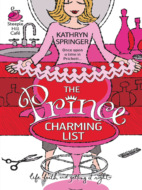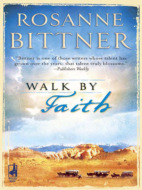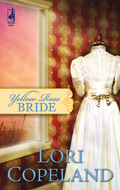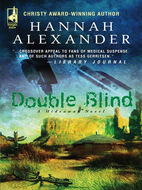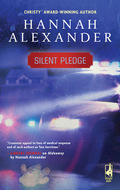Kitap dosya olarak indirilemez ancak uygulamamız üzerinden veya online olarak web sitemizden okunabilir.
Kitabı oku: «Stranger In The Night»
Praise for
CATHERINE PALMER
and her novels
“Catherine Palmer pens a page-turner with a…thought-provoking plot.”
— Romantic Times BOOKreviews on Fatal Harvest
“Palmer knows how to write about a sensitive subject with wisdom and kindness.”
— Romantic Times BOOKreviews on Thread of Deceit
“Marked by top-notch writing and sweeping drama.”
— Library Journal on The Briton
“Veteran romance writer Palmer…delivers a satisfying tale of mother-daughter dynamics sprinkled with romance.”
— Library Journal on Leaves of Hope
“Enjoyable…Faith fiction fans will find this novel just their cup of tea.”
— Publishers Weekly Religion Bookline on Leaves of Hope
“Believable characters tug at heartstrings, and God’s power to change hearts and lives is beautifully depicted.”
— Romantic Times BOOKreviews on “Christmas in My Heart” in That Christmas Feeling
“ Love’s Haven is a glorious story that was wonderfully told…. Catherine Palmer did a stand-up job of describing each scene and creating a world which no reader will want to leave.”
— Cataromance Reviews
Christy Award-Winning Author
Stranger In The Night
Catherine Palmer
A Haven Novel
MILLS & BOON
Before you start reading, why not sign up?
Thank you for downloading this Mills & Boon book. If you want to hear about exclusive discounts, special offers and competitions, sign up to our email newsletter today!
Or simply visit
Mills & Boon emails are completely free to receive and you can unsubscribe at any time via the link in any email we send you.
To the refugees in Clarkston, Georgia,
who have brought such joy into my life.
Acknowledgments
Many thanks to those who shared stories of their work with refugees. In particular, I’m grateful to Tim Cummins, Terry Earl, Bennett Ekandem, Kim Kimbrell and all the caseworkers and other staff at World Relief. May God bless each of you. As always, my gratitude to my husband is boundless. Thank you for reading every word—sometimes more than once. I love you, Tim.
“When a stranger sojourns with you in your land,
you shall not do him wrong.
The stranger who sojourns with you
shall be to you as the native among you,
and you shall love him as yourself…
I am the Lord your God.”
— Leviticus 19:33–34
“Come, you who are blessed by the Father,
inherit the Kingdom prepared for you
from the foundation of the world.
For…I was a stranger,
and you took me in.”
— Jesus Christ
Matthew 25:34–35
Contents
Chapter One
Chapter Two
Chapter Three
Chapter Four
Chapter Five
Chapter Six
Chapter Seven
Chapter Eight
Chapter Nine
Chapter Ten
Chapter Eleven
Chapter Twelve
Chapter Thirteen
Chapter Fourteen
Chapter Fifteen
Chapter Sixteen
Chapter Seventeen
Chapter Eighteen
Chapter Nineteen
Chapter Twenty
Chapter Twenty-One
Questions for Discussion
Chapter One
S weat dampening the wrinkled sheet beneath him, Joshua Duff counted the spurts of AK-47 bullets hitting the front door. The first round slipped into his nightmare—house check on a nameless street in Kabul. A search for insurgents. Dread crawled through him like a snake, twining around his neck, suffocating him as he crept forward in the heat. Faces stared at him, brown eyes luminous beneath long, fringed black lashes. Mouths smiled, lips parting over missing teeth. Hands reached out, fingers extended.
Friend? Or enemy?
The second round of staccato hammering woke Joshua from the troubled dream. The strangled breaths were his own. Jerking upright, he reached for a gun that wasn’t there. The smell of gym shoes, basketballs, dusty concrete caught in his nostrils. This was not his barracks.
Or was it?
His eyes searched the darkness. Confusion tore through his brain as he worked to decipher data. A form lay on a bed across from him. The mound of muscled shoulder was motionless. Another man sprawled on a mattress near the door.
Comrade or civilian?
Asleep or dead?
A single window filled the only visible wall.
Somewhere nearby, an animal snuffled.
Death still stalking him, perspiration beading his bare chest, Joshua gripped the rounded aluminum frame of his cot. He licked his lips, expecting grit. Its absence surprised him. The tendon in his jaw flickered as he tried to force reality into his brain.
Of all the adversaries he’d faced in his thirty years, this was the most wily. This doubt and hesitation, this inability to decode the truth, eluded him like a Taliban sniper in the Hindu Kush Mountains. He tensed, waiting for an imam’s voice to drift from a distant minaret, the morning melody of Islam. The start of another day.
The hammering rang out a third time. Not a machine gun, it was fist against metal.
“Devil take ’em.” Sam Hawke’s familiar voice was drowsy in the stifling room. Hawke was a fellow Marine. Reconnaissance. They had patrolled the streets together too many times to count.
The other man unfolded now, a hiss groaning through the air mattress beneath him. “Where’s Duke? Come here, boy.”
A German shepherd’s low-throated growl answered. Joshua recognized it. He had seen the dog before. But where? Toenails clicked across the cement floor as Duke paced. The edges of Joshua’s nightmare began to sift away like desert sand.
“I’ll get the door,” Sam said, rising. He glanced at Joshua. “Duff, you stay put. Let’s go, Terell.”
Terell Roberts—the third man’s name. He stood and stretched. His dark skin shimmered with perspiration.
Duke tensed, waiting for one of them to open the door. The dog anticipated each movement the men made. He knew this routine.
Sam flipped on a lamp and Joshua scanned the room, distinguishing a heap of jeans and T-shirts awaiting detergent and a dryer. He noted a clipboard near his cot, the list of activities Sam had planned for the coming day. Joshua recalled his friend handing it to him, explaining what he’d written—basketball practice, homework and tutoring, woodworking, computer skills, ballet lessons, crochet, arts and crafts.
Hardly the business of their Marine Corps reconnaissance unit.
He spotted his wallet and keys on a low table. That wallet held U. S. tens, twenties, fifties. More than a month had passed since he’d carried colorful paper afghanis with their detailed etchings of mosques, and handfuls of jingling puls in his uniform pockets. He had rented a civilian car at the airport. He recalled parking the black Cadillac near the building’s front door the evening before.
This was what they called post-combat disorder. Post-traumatic stress syndrome…
A fourth round of hammering broke his focus.
“Persistent booger,” Sam muttered.
Shaking off his confusion, Joshua got to his feet. “What’s up, Hawke?”
“Nothing. We get this every night. Homeless folks in search of a bed, a drink, another fix bang on Haven’s door. Some think it says Heaven.”
“Yeah, and they’re ready.” Terell chuckled ruefully as he stepped into a pair of flip-flops.
Joshua recalled the old building now. Haven, the sign over the entrance read. This was Sam Hawke’s place, the youth center he and Terell Roberts had opened about a year ago. While deployed together, Sam had told Joshua about playing basketball in college. He had spoken of Terell, the consummate athlete, destined for the history books. Last night, Joshua learned that Terell had spent a few years in the pros before bottoming out. Sam had come to his rescue, and with the last of Terell’s NBA savings, they had started Haven.
Sam Hawke was loyal, a man who never forgot a friend. Joshua hadn’t been home in Amarillo for a full day before Sam called and invited his friend to St. Louis.
“Come see what I’ve got cooking, Duff,” Sam had urged. “Your old man is planning to slip those velvet handcuffs around your wrists any day now. Get over here and pay me a visit while you can.”
The idea of spending time at a youth center in the run-down inner city didn’t appeal to Joshua. He had invested more than enough of himself in the poverty and danger of Afghanistan. His parents’ rambling adobe house with its swimming pool and tennis court looked pretty good. He would enjoy riding out on one of the Arabians his father bred. There would be dinners with friends and family, flying over the spread in the Cessna, heading into town for a…
Come to think of it, Joshua couldn’t figure out what he’d want to do in Amarillo. The ranch certainly wasn’t going anywhere. His father’s oil business and the executive position could wait, too. With his parents both protesting, he had grabbed his duffel bag and headed back to the airport.
In St. Louis, he had rented the Cadillac. Then he drove into the city. Though it was late when Joshua arrived at Haven, he, Sam and Terell had stayed up talking for hours. When his head hit the pillow, Joshua had expected to sleep at least until the sun came up. But it seemed the two directors of the youth center were accustomed to regular interruptions of their night’s rest.
“Armed?” Sam asked Terell as they stood in the half-light of the large room.
Expecting the men to reach for handguns, Joshua was surprised when Terell picked up a can of pepper spray. Defensive weapon. Strange choice, he thought.
Sam reached for a box he kept under his bed. He offered it to his friend.
Gleaming steel knives. Joshua glanced up in confusion. Sam and he were both expert marksmen.
“We keep a low profile around here,” Sam said with a shrug.
Fingers closing around a slender stiletto, razor sharp, Joshua considered his friend’s arsenal. A knife was an offensive weapon. That fit with what he knew of Sam Hawke. Highly trained leaders, the men were still very much alike.
The German shepherd led the way out of the humid room, across a dank landing to a flight of chipped concrete steps.
“Male,” Terell said as they began the descent.
“Agreed.” Sam’s voice was husky. “White.”
“Nah, black. A kid. Scared.”
Joshua realized this must be a nightly guessing game.
“Middle-aged,” Sam offered. “Drunk.”
“Bleeding.”
“Probably.” Sam picked up a first-aid kit near the stairwell. “Knife wound.”
“Gunshot.”
None of it sounded good to Joshua.
The three men crossed the cavernous gym, the site of Haven’s single basketball court, two foursquare layouts, and just enough room for a gaggle of jump-ropers. Duke huffed with anticipation as he padded ahead. Yet another round of knocking began as they arrived at the front door.
“Whatcha need?” Terell called.
“Open the door. Please open.”
At the pleading voice outside, Sam and Terell looked at each other, blue eyes meeting brown.
“Illegal alien,” Sam said. “Adult male. Lost.”
“Bet he got kicked out of his apartment,” Terell muttered, reaching for the bar that secured the door.
Joshua weighed the stiletto in his palm. Earlier that evening, Sam had told him that African-American kids were a consistent majority at Haven. Latin Americans were part of the mix, too—most poor, persecuted, living on the brink. Unable to obtain visas or achieve refugee status, their parents had spent all they had and risked their lives to enter the U. S. illegally.
But the composition of the neighborhood had begun to change in recent months. Charitable foundations were resettling refugees by the score in St. Louis. An influx of immigrants from Burma, Somalia, Sudan, Congo, Bosnia and other war-torn countries led to new youngsters stepping timidly through the metal detector at Haven’s front door.
Long ago, Sam and Terell had decided to take a “don’t ask, don’t tell” policy regarding legal documentation, they told Joshua. Haven was about the business of God’s work. And the Lord had laid out a clear mandate for His people to welcome the alien.
“You ready?” Sam asked, flicking a glance at Joshua.
He gave a brief nod as he sized up Terell. Tall and massively built, the man held up his slender can of pepper spray while Sam lifted the bar and drew back the bolt.
At the slide and click of metal against metal, wisps of Joshua’s nightmare floated across his mind. He gritted his teeth. The door swung open.
Liz Wallace turned a page in her scrapbook and ran a fingertip over the photograph of her parents waving goodbye at St. Louis’s Lambert Airport. They had no clue that within three days, their precious child would be sitting down to a meal of roasted bush rat.
In fact, they never found out the whole story. You couldn’t just fire off an e-mail that read, Hi Mom and Dad. Ate monkey meat and fried termites for dinner today.
This was not the kind of thing that would boost their enthusiasm for Liz’s dreams of becoming a foreign aid worker. Of course, her brief trip to the Democratic Republic of Congo hadn’t exactly been about transforming the plight of a Third World nation. She and her college teammates went to help rebuild a primary school that had been hit too many times by mortar fire. They put up a few walls and hurried home.
But that trip, more than a year before, had changed Liz’s life. The moment she graduated from college, she took a job with Refugee Hope, a resettlement agency in St. Louis. Her goal: to learn Swahili, enter a training program and move to Africa to work for the United Nations in refugee camps.
On this stifling night, unable to sleep after long hours toting supplies to incoming families from Burma and Bosnia, Liz couldn’t sleep. Not unusual. Most days she was so exhausted she could hardly stand up. But after arriving home to her studio apartment, eating a quick bite of dinner and checking her schedule for the next day, she felt her second wind kick in. Wide-awake and unable to turn off her brain by 2:00 a.m., she made a cup of decaf tea and settled on her sofa with the scrapbook.
Liz turned the page and studied the faces gazing back at her, impassive and worn. She had briefly considered decorating the page in the colors of the Congo flag and placing stickers of wild animals here and there. But why distract from the beauty of the Congolese people with their buttery chocolate skin and deep eyes?
Yet what suffering the people had endured. Until that trip, Liz had never heard of such horrors. She understood now that Rwanda’s civil war had sent nearly a million refugees pouring over the border into Congolese camps. When those refugees began to build power to retake their homeland, they enlisted the help of men in Congo’s government. That brought resistance.
War began in Congo in the fall of 1996, complete with genocide, looting and genital mutilation. In some areas, soldiers raped more than half the women. Almost fifty thousand children were kidnapped and forced into combat, slave labor, sexual servitude.
Not long after a cease-fire was signed in 1999, insurgent groups led a second uprising. Yet another peace treaty was signed in 2003. By the time Liz arrived in Kinshasa, more than four million people had died. Some were killed in the conflict, but most perished from disease and starvation.
Three million were homeless. Houses, hospitals and schools lay in rubble. Fields and food supplies were burned. People hovered on the brink of starvation.
Under the umbrella organization of Refugee Hope, Liz cared for many of those woeful survivors who arrived in St. Louis. She wasn’t doing much to help, though. Her job was mostly desk work. Filing government forms.
She wondered if anyone could prevent genocide. Probably not.
Four sets of dark eyes stared back at Joshua. He had seen this before—a man, a woman, two children, a plea for help written on earnest faces. Their innocence could belie a body strapped with explosives. In battle, Joshua had learned not to trust any expression of virtue. But this wasn’t warfare—not the combat kind, anyway.
With a tired smile, Sam stepped into the open doorway of Haven. “Hey, there,” he greeted them. “What can we do for you tonight?”
The man gave an awkward little bow. Skin of polished ebony glowed in the streetlight. His gray shirt was too big, made of cotton, short-sleeved and wrinkled. Khaki trousers sagged at the ankles. Shoes, cracked patent leather with frayed laces, had parted at the seams to reveal threadbare socks.
“Good evening, sir,” he said, clutching a battered suitcase. A faint British accent, Joshua noticed. “I am Stephen Rudi. If you please, may I present my wife, Mary. And here is my daughter, Charity, and my son, Virtue. We come from Paganda.”
“What are you folks doing on the street at this time of night?” Sam asked. “This is a dangerous area.”
“Yeah, and it’s after two in the morning.” Terell was peering at his Rolex, evidently a vestige of his once-lucrative basketball career. “Mr. Rudi, your children ought to be in bed.”
“Indeed, sir. But we have had a most unfortunate day. Please, may I explain? You see, we had recently arrived in Atlanta when we received a letter from my wife’s brother. This man is our only family member to escape the recent unrest in Paganda. He invited us to join him here, where we could live with him and find better jobs. We traveled to St. Louis by bus, arriving this morning. But we searched all day, and we could not find him.”
“Aha.” Terell stifled a yawn. “So, you’re from where? South Africa?”
“Paganda, sir. It is in East Africa, near Lake Victoria.”
Joshua could see that neither Sam nor Terell recognized the country. He didn’t recall much about it himself. Former British colony. Few natural resources. Tribal conflict—humanity’s constantly failing effort to eradicate enemies. Sunnis and Shiites. Kurds and Iraqis. Hindus and Muslims. Nazis and Jews. Spaniards and Aztecs. Settlers and Natives. Boers and British.
Extermination never worked, but people forgot that. Again and again they attempted the wholesale slaughter of their foes. Genocide wouldn’t end until trumpets rang out in the eastern sky to announce the end of time.
“You still got that letter?” Terell asked, focusing on the man’s wife. “Uh…what was the name?”
“Mary.” Stephen Rudi spoke for her. He fished in his pocket and then unfolded a tattered sheet of notebook paper. Holding it out to Terell, he tapped a place near the end of the page. “This is the address, sir, but my wife’s brother is not to be found. Our search revealed nothing, not even the correct street.”
While Terell and Sam studied the letter, Joshua appraised the Pagandan woman who stood beside her husband. Tiny and thin-boned, she wore large round spectacles that all but masked the distinguishing features of her face. She kept her eyes downcast and her fingers woven together, as if determined to draw no attention to herself. Joshua had seen this attempt at self-preservation in Afghani women and children. An effort to hide in plain sight.
A scarf, elaborately knotted, covered her head. Her dress, threadbare pink gingham with eyelet lace at the neck, was mostly covered by a length of ethnic-patterned fabric. She had wrapped it in a sort of African sarong. The woman had the look of a frightened bird.
Turning his assessment to the two children, Joshua saw exhaustion weighing on them. They gazed up at their father in a mixture of respect and concern. Charity’s hair was braided in messy cornrows. Her bright almond eyes glowed with intelligence. She had white teeth, a pug nose, round cheeks. She would do well in school, Joshua thought.
The boy was a mirror image of his older sister—minus the cornrows and several teeth. How did so many five-year-olds manage to lose their two front teeth not long before Christmas? he wondered. The old song “All I Want for Christmas is My Two Front Teeth” wouldn’t be meaningful without a few toothless kids belting it out.
“I don’t think that street exists,” Terell commented. He passed the letter to Sam. “You ever heard of this place?”
Joshua eyed the document as his friend read it. Pulled from a college-ruled notebook, the page had been handled so much it was about to fall apart. Messy pencil marks were smudged, hard to read. A grease spot had blurred the signature. In the upper-right corner, a water ring muddied the blue lines. The letter was written in an African language, but the address at the end was clear enough.
Sam returned the precious page to its owner. “You sure this is in St. Louis, Mr. Rudi?”
“Indeed, sir.” Stephen glanced at his wife, suddenly hesitant. He spoke to her in their mother tongue for a moment. Head low, she uttered a couple of barely distinguishable words in response.
Stephen nodded. “If you please, sir. My wife is quite certain her brother lives in St. Louis.”
Terell and Sam eyed each other for a moment. Finally Sam spoke up. “I’m sorry, but Haven is not a homeless shelter. Our mission statement prohibits taking in strangers. We have a rule.”
Joshua couldn’t believe what he was hearing. He nudged his friend’s elbow. “Sam, can I talk to you for a second?” They stepped back into the building. “Since when did you abide by rules?”
“If we let these folks in,” Sam replied in a low voice, “we can’t turn anyone else away.”
“Come on, man. We can’t leave those kids on the street.”
Sam gave him a long look and shrugged. “I’ll probably regret this, but okay.”
As they emerged onto the sidewalk, Joshua reached for the children’s hands. “Come on, you two. The sooner you’re settled, the sooner we can all get some sleep.”
Sam let out a breath. “We’ll put you up for the night, Mr. Rudi. No longer than a week, though.”
“That’s our max, so don’t try to argue us out of it.” Terell spoke as firmly as he could, which wasn’t saying much. “Do you understand?”
Terell Roberts looked as if he could tear a man’s head off. But his gentle tone led Joshua to believe the guy was a bona fide teddy bear—compliant, impossibly kind, generous. How would he respond in a conflict situation?
“We would never wish to impose upon your kindness,” Stephen vowed to his benefactors as Sam bolted the door behind them. “Indeed, we are sincerely grateful.”
The Rudi family accompanied Terell across the basketball court toward the stairwell. Sam followed with Joshua.
“They’ll beg for more time,” Sam said under his breath. “They always do. The homeless, hungry, sick, battered, dying—they come to Haven hoping for a solution to their problems.”
“Do they ever find one?”
“Temporarily. We let them stay a night or two until they find other quarters. Relief agencies, shelters, food kitchens fill the gap. But it’s never enough.”
“Doesn’t the constant need drag you down?”
“Nah. It’s like the war. You focus on the good, the hopeful.”
“Your fiancée?”
Sam smiled. “Ana helps.”
The woman who had walked into Sam’s life that summer brought him to life again, he had told Joshua. He felt almost human for the first time since his military discharge. Sam said Ana’s intensity matched his own. She could be difficult and definitely stubborn. But with Ana, he could let down his guard.
Joshua was happy for his friend. He’d been too long without a woman in his own life, and he didn’t see much prospect for that changing anytime soon. Most of the girls at home were provincial. They believed everything they heard on television. Few had set foot outside the U. S. Some had never left Texas.
One or two women had caught Joshua’s eye while in Afghanistan, but a military romance was not for him. He enjoyed a lady who knew how the world functioned, but he didn’t want the separation or anxiety of such a relationship. He wouldn’t like to worry about safety. If he ever found love, he couldn’t risk losing it. So he had kept himself distant, focused on the task at hand.
“Ana’s not the only good thing in my life,” Sam said as they approached the stairwell. “We’ve got a lot to be thankful for around here. Lead paint abatement crews just finished stripping and recoating our walls. Ana wrote an article about the paint problem, and a surge of donations poured in. We formed a nonprofit organization—complete with a board of directors and grant writers. The bathrooms are finally working. The ramps, exits and stairwells meet code. It’s been a long haul.”
“The place looks good,” Joshua agreed.
“We’ve got new volunteers, too. Plus, the vet gave Duke an all-clear this morning. Hip dysplasia forced him out of police K-9 service too early, but he’s been God’s gift to us.”
“And this Pagandan family. Thanks to Haven, they’ll sleep safely tonight.”
“You’re the one who made that happen,” Sam said. “We’ve turned away people a lot more pitiful.”
“I’d never let a kid sleep on the streets. You wouldn’t, either, Hawke. You know it.”
As they began to climb the steps to the second floor, Charity and Virtue stretched tiny hands to pat the big dog. Joshua guessed the canine had been trained to sniff out drugs and could take down a grown man, but these small children sensed he wouldn’t harm them.
When Virtue sagged against the stairwell wall, Joshua lifted the tired boy into his arms. Sam scooped up the little girl.
“So Paganda has some big cities?” Terell was asking their father.
“One,” Stephen said. “But we come from a small village beside Lake Victoria. Our people were fishermen.”
“Were?” Terell frowned. “You mean they stopped?”
“Sir, the village was burned. My people…are not there now.”
Joshua silently prayed that Terell would take the hint. But subtlety was not the man’s strong suit.
“Headed for refugee camps, I’ll bet. Good thing you got your family out.”
“My children and I are three of only nine people who survived from my village.” Stephen paused in the stairwell, his voice growing low. “When my wife learned that the rebel army was coming, she placed these two—the youngest except for our baby—inside a metal water drum. There were only a few liters remaining inside it, and she put a padlock on the top. Because of rust, the drum had small holes. Through these, the air could come. When I returned to my house, I saw that the roof and walls had burned. Rebels had looted the furnishings. But God protected the drum. Inside it, I found my two children.”
As Stephen spoke the final words, a chill crawled up Joshua’s spine. The drowsy little boy whose head lolled against his shoulder had survived the destruction of his village because his mother had hidden him in a water drum? At their young ages, the kids might have drowned. The burning house could have caved in on top of them. They might have been discovered and killed. The child was a miracle.
“But where were you the whole time?” Terell asked Stephen as the group walked down a hall.
His grunt was bitter. “I was attending a pastors’ meeting in another town. When I heard news of the rebel attack, I rode my bicycle as fast as I could. But I arrived at my village too late.”
“So your baby? What…I mean…Where’s the baby?”
Shaking his head, Joshua realized that Tyrell had never seen the shell-shocked faces of civilians whose lives were destroyed by war and death. His own inability to shrug off nightmares and block memories of events he had witnessed showed how difficult it could be to recover from such trauma.
“My son, Justice, was killed,” Stephen said, the words muffled. “Also my first wife, Priscilla, and my other children, Purity, Hope, Fidelity and Honor. I would thank you, please, that we not discuss this subject further tonight, sir. By God’s grace, I still have Charity and Virtue. I must protect them from the memories of what they heard and saw.”
“Oh, yeah, my brother. We can drop that topic forever.” Terell looked shaken.
The group stepped into a small room outfitted with several beds and a table. Despite its rules, Haven had made provisions for just such an emergency as this.
“You’ve got clean sheets there,” Sam said. “We keep crackers and power bars on that shelf. Towels and soap are in the bathroom, along with paper drinking cups.”
“I could run out for some milk,” Terell offered. “I’d be glad to do it.”
“Water is most acceptable for us.” Stephen faced his benefactors. “May God bless you for your kindness.”
Joshua bent and gently laid the sleeping Virtue on one of the beds. He pulled a sheet and thin blanket over the child. Thumb thrust into his mouth, Virtue barely stirred. Charity, too, was sound asleep.
When he straightened, Joshua noted that Sam and Terell had left the room. Stephen was murmuring to his wife. It was time to leave the family in peace. Yet Joshua needed to speak.
“Excuse me,” he said. The two Pagandans fell silent as Joshua addressed Stephen. “You’re a pastor, then. A Christian.”
“I am, sir.”
Joshua hesitated a moment. “The pain and the loss you feel. The fear, too. I’ve known some of that. God takes care of it after a while. He uses it to make you better. Trust Him.”
Stephen swallowed, unable to meet the other man’s eyes. He nodded slightly, but did not otherwise respond.
“Good night,” Joshua said finally. “We’ll see you in the morning.”
He closed the door and started after Terell, who was questioning Sam as they walked to their shared room. “Did you hear what that guy said? Rebels killed his baby. His baby! That is just wrong. Those other names—were those his kids, too?”
“Yeah, and his wife,” Joshua said, catching up to them.
Sam frowned. “But his wife is with him.”

